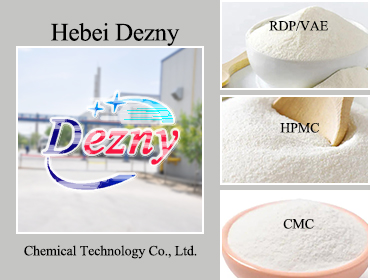
 2024-08-05- readings
2024-08-05- readingsIntroduction
Hydroxypropyl Methylcellulose (HPMC) is a cellulose ether widely used in the construction industry, particularly in formulations for tile adhesives and gypsum powder. Its multifunctional properties—such as water retention, thickening, and improved workability—make it indispensable in these applications. This discussion will examine the role, mechanisms, and benefits of HPMC in tile adhesives and gypsum powder, along with practical considerations for its use.
#### HPMC in Tile Adhesives
1. **Water Retention**:
- **Mechanism**: HPMC’s high water retention capability ensures that the moisture required for cement hydration is maintained for a longer period.
- **Benefit**: Enhanced water retention prevents premature drying, ensuring a complete and stronger bond between the tile adhesive and the substrate. This leads to improved adhesion and durability of the tile installation.
2. **Improved Workability and Open Time**:
- **Mechanism**: HPMC modifies the rheological properties of the adhesive, making it more workable and easier to spread.
- **Benefit**: Increased workability and extended open time allow for easier adjustment of tiles and reduce the risk of adhesive drying out too quickly, which can compromise bonding.
3. **Anti-Sagging Properties**:
- **Mechanism**: The viscosity-enhancing properties of HPMC help maintain the position of tiles on vertical surfaces by preventing sagging.
- **Benefit**: Anti-sagging properties ensure that tiles remain in place during installation, leading to a more precise and aesthetically pleasing finish.
4. **Enhanced Adhesion and Flexibility**:
- **Mechanism**: HPMC contributes to the formation of a flexible and adhesive polymer film within the adhesive matrix.
- **Benefit**: Improved adhesion to various substrates and enhanced flexibility accommodate slight movements or thermal expansions, reducing the risk of tile detachment and cracking.
#### HPMC in Gypsum Powder
1. **Water Retention**:
- **Mechanism**: Similar to its role in tile adhesives, HPMC’s water retention properties are crucial in gypsum-based formulations.
- **Benefit**: High water retention prevents rapid water loss, ensuring proper hydration and setting of the gypsum, which results in a stronger and more durable finish.
2. **Workability and Consistency**:
- **Mechanism**: HPMC improves the consistency and workability of gypsum powder by enhancing its viscosity and smoothness.
- **Benefit**: Improved workability allows for easier application and leveling of the gypsum, leading to a smooth and even surface finish.
3. **Setting Time Control**:
- **Mechanism**: HPMC can help regulate the setting time of gypsum, providing a controlled and manageable working time.
- **Benefit**: Controlled setting time allows for efficient application and finishing processes, reducing waste and ensuring a high-quality finish.
4. **Improved Cohesion and Reduced Shrinkage**:
- **Mechanism**: HPMC enhances the cohesion of gypsum particles, reducing the tendency for shrinkage and cracking.
- **Benefit**: Reduced shrinkage and improved cohesion result in a more stable and durable gypsum layer, minimizing the risk of surface defects and structural weaknesses.
#### Practical Considerations in Formulation
1. **Dosage**:
- **Optimal Range**: The typical dosage of HPMC in tile adhesives ranges from 0.1% to 0.5%, while in gypsum powder, it ranges from 0.2% to 0.6% by weight of the dry mix.
- **Adjustment**: The exact amount depends on the specific requirements of the application and the desired performance characteristics. Overuse can lead to excessive viscosity and reduced workability.
2. **Compatibility**:
- **Synergistic Effects**: HPMC is compatible with various additives used in tile adhesives and gypsum powders, such as plasticizers, retarders, and fillers.
- **Compatibility Testing**: Conducting compatibility tests ensures that HPMC does not negatively interact with other components, maintaining the stability and performance of the formulation.
3. **Environmental Factors**:
- **Temperature and Humidity**: The performance of HPMC can be affected by environmental conditions. High temperatures can accelerate drying, while high humidity can prolong it.
- **Adaptation**: Formulations may need to be adjusted seasonally or based on geographic location to maintain consistent performance under different environmental conditions.
#### Conclusion
HPMC is a vital additive in tile adhesives and gypsum powder formulations due to its superior water retention, workability, adhesion, and flexibility properties. Its ability to improve the performance and durability of these materials makes it essential for high-quality construction applications. By optimizing the dosage and ensuring compatibility with other components, HPMC can significantly enhance the effectiveness and reliability of tile adhesives and gypsum-based products, leading to better construction outcomes and long-lasting finishes.